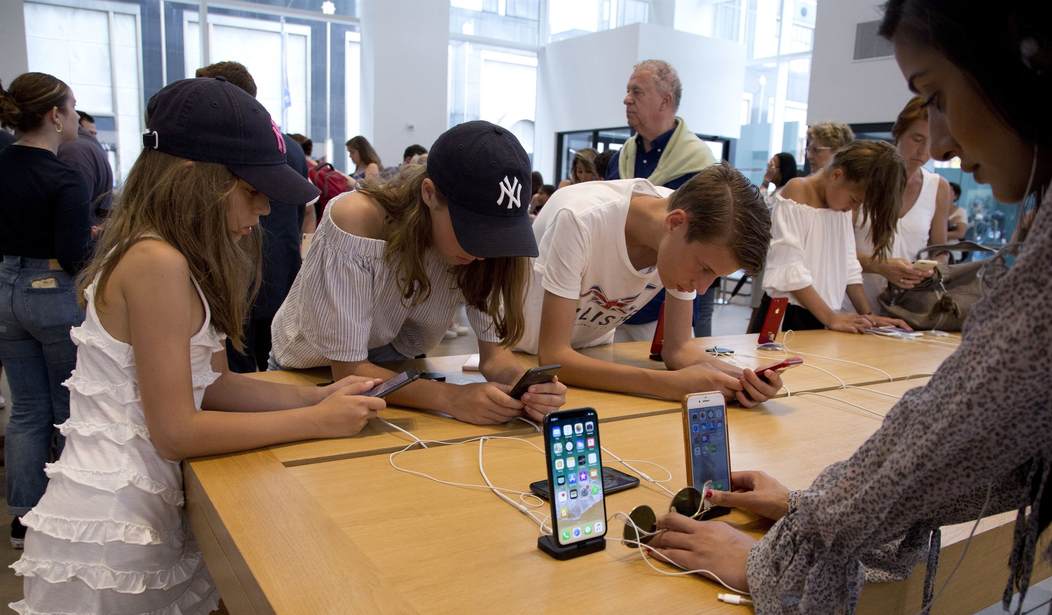We live in a very pent-up age and the big reasons are easy to spot.
Since the invention of the internet, humanity has very quickly become a species interconnected to one another, capable of instantaneous communication over vast distances. Text, video, and audio can be digitally packaged and delivered to the world in no time flat, creating an environment of familiarity with complete strangers from across the globe.
And yet, familiarity breeds contempt.
Humanity is a complicated beast in that it can show untold levels of compassion and care as well as the coldest apathy and anger you've ever seen. Within the familiarity of individuals invited by the connection the internet provides is a level of detachment that can cause one simple misunderstanding or one misspoken phrase to turn into a life-ruining moment.
We've never been more connected to each other, and now, we've never been more careful around each other.
While millennials were the generation that first had to deal with this level of connection in their youth, many still remember a time when that wasn't the case. Gen Z, however, doesn't have the luxury of knowing what it's like to not live in a world where your anonymity is unlikely.
Moreover, Gen Z has the added pressure of being expected to perform online. Their professional future is tied to their online life. Like everyone else, their personal social media accounts have become resumes. Voicing an opinion may result in you losing out on opportunities, even if that opinion was spoken years ago when it was still socially acceptable to do so.
It's why Gen Z and younger millennials report being "completely overwhelmed" by stress according to the American Psychological Association, and the factors for this are many, but isolation is one of the chief causes:
While strong social connections are a well-documented defense against stress, young people seem to struggle most to make them.
APA’s survey found that 74% of those ages 18 to 34 and 70% of those ages 35 to 44 say it’s harder to connect with people today than in the past, and 70% of 18–34-year-olds and 65% of 35–44-year-olds say they wish someone would check in with them more frequently.
While it's easy for older generations to dismiss these issues and even laugh at them, the truth is that younger millennials and Gen Z are dealing with something no previous generation had to; which is to grow up in an interconnected world where you're constantly being watched and judged. The only people who ever truly had to deal with this in their youth were child celebrities, and few of them got out with their psyches fully intact.
It's something even actress Jodie Foster recently commented on. In an interview with The Guardian, Foster noted that working with Gen Z is a different beast:
What does she think young people in her industry need to hear? “They need to learn how to relax, how to not think about it so much, how to come up with something that’s theirs. I can help them find that, which is so much more fun than being, with all the pressure behind it, the protagonist of the story.”
Foster is very supportive of helping Gen Z, but she admits she finds them very unprofessional and self-centered:
I should add that, for all her cheerleading of gen Z, Foster isn’t above being irritated by them. “They’re really annoying, especially in the workplace. They’re like, ‘Nah, I’m not feeling it today, I’m gonna come in at 10.30am.’ Or, like, in emails, I’ll tell them this is all grammatically incorrect, did you not check your spelling? And they’re like, ‘Why would I do that, isn’t that kind of limiting?’”
To previous generations, this is an unacceptable attitude to have at work, but to Gen-Z, this is perfectly permissible and even encouraged. To them, this is taking back agency that's been taken from them. While it's not respectable and should not be tolerated by those who hire them, we can at least see why they believe this kind of behavior is positive in their eyes.
It's because they've had to share their entire lives with others, and they believe this is one of the few ways they can exert a form of control. It's a misplaced belief but it's one that's caught on like wildfire.
At this stage, I'm not sure Gen Z can be taught otherwise, but Millennials can still shape the course of the future by teaching their children's generation, Gen Alpha, some valuable lessons.
The most important thing to understand about this interconnected world is...relax.
While the internet might encourage you to perform for strangers at all times, it's best to remember that you don't have to. You don't have to follow what's approved of by the mainstream culture, and if there's one thing millennials have picked up by their dual experience of being both in and out of a connected world, it's that the relationships in your immediate vicinity are far more important than any parasocial relationship you find online.
If someone is offended at something you said or did...that's on them, and you are under no obligation to save their feelings or reconcile with them in any way. While the world likes to promote "care," and "inclusivity," the true salve to the rising levels of stress is actually a bit more apathy. The world's problems are not your problems. Your problems are your problems.
As Gen Alpha grows into the age where they will become more social with people outside their immediate family members, it needs to be impressed upon them that the internet, while an important part of society, is not real life and the judgemental eyes on them and the comments they'll inevitably receive from them don't matter.
It's hard to stress someone pre-prepared not to stress about things. Gen Z may find itself learning this lesson as they get older, but perhaps Gen Alpha can skip this altogether thanks to Millennial parents who know about this new world better.















